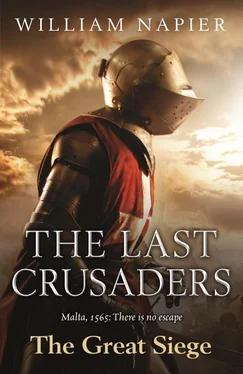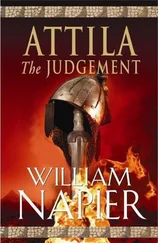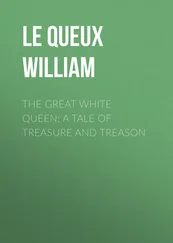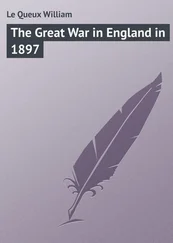William Napier - The Great Siege
Здесь есть возможность читать онлайн «William Napier - The Great Siege» весь текст электронной книги совершенно бесплатно (целиком полную версию без сокращений). В некоторых случаях можно слушать аудио, скачать через торрент в формате fb2 и присутствует краткое содержание. Жанр: Исторические приключения, на английском языке. Описание произведения, (предисловие) а так же отзывы посетителей доступны на портале библиотеки ЛибКат.
- Название:The Great Siege
- Автор:
- Жанр:
- Год:неизвестен
- ISBN:нет данных
- Рейтинг книги:5 / 5. Голосов: 1
-
Избранное:Добавить в избранное
- Отзывы:
-
Ваша оценка:
- 100
- 1
- 2
- 3
- 4
- 5
The Great Siege: краткое содержание, описание и аннотация
Предлагаем к чтению аннотацию, описание, краткое содержание или предисловие (зависит от того, что написал сам автор книги «The Great Siege»). Если вы не нашли необходимую информацию о книге — напишите в комментариях, мы постараемся отыскать её.
The Great Siege — читать онлайн бесплатно полную книгу (весь текст) целиком
Ниже представлен текст книги, разбитый по страницам. Система сохранения места последней прочитанной страницы, позволяет с удобством читать онлайн бесплатно книгу «The Great Siege», без необходимости каждый раз заново искать на чём Вы остановились. Поставьте закладку, и сможете в любой момент перейти на страницу, на которой закончили чтение.
Интервал:
Закладка:
Even Mustafa Pasha spoke little as he surveyed the devastation, the bodies, and eyed with distaste the various mutilations practised on the corpses by the laughing, maddened Bektaşis.
‘In the name of Allah,’ he was heard to murmur, looking across to Birgu once more. ‘If the son has cost us so much, what will the father cost us?’
Part IV
1
Nicholas came back to Birgu as he arrived at Elmo before, not knowing when or how. The two broken refugees were hauled from the water by stout fishermen on the Kalkara shore, just below the walls of San Angelo, and given watered wine to drink. Nicholas knelt, for he could not yet stand, and put the trembling cup to his lips and gulped it down. He thought he was at the Mass. Then he handed the cup to the figure beside him. His eyes and understanding were so blurred, he did not know exactly who it was.
The fishermen helped them and they both stood upright with great effort, swaying, barely seeing or hearing, their senses far way. But exhausted as they were, something fresh coursed in their veins, along with the wine and water. They were back in the city. Birgu. They had escaped Elmo. Their brothers were all slain there.
Stanley said, his voice his own once more, ‘ And we only are alone escaped to tell thee .’
The wound to his head ran with fresh blood thinned with saltwater, his fair hair was darkly plastered, his wounds too many to count, his clothes like Nicholas’s own a disgrace of blackened and bloody tatters. Yet they both lived, and with their full senses. The healing power of seawater was deep and mysterious. Along with all the deep sorrow of Elmo’s fall, and the bitterness of this war that had barely begun, they felt a surge of powerful contradictory joy: the ancient primitive joy of the survivor.
Around them the people and then more and more knights came to greet them and look on with wonder and relief. Young boys ran off to spread the word that though Elmo was indeed fallen, yet two had escaped alive, and before long the word was all over the town. La Valette was immediately informed, and according to his prompt orders, in the heart of the night, aged sacristans shuffled up darkened spiral stairways in cobwebbed towers to ring solitary stark iron bells. It was the second time the bells of Birgu’s churches had rung tonight, the first time with a more direful peel. The two fugitives had not heard that earlier peel across the water, their ears deafened and bleeding with the roar of cannon.
In response to the joyful tolling of bells, heads turned and glared across the water from the Turkish column. Mustafa’s eyes burned black. What were the slaves celebrating now? No help had come. No help would come. Ottoman intelligence was sure. The Christians had as much sense of unity and brotherhood as weasels fighting in a hole.
Nicholas and Stanley looked at each other and then embraced. Two figures that might have come up from the deep ocean, or from another world imagined by the poets. A man and a boy, who had that look in their eyes and that strength in their bearing, however weakened their frames, of two who had walked with death for many days and weeks and not been destroyed by it.
The scene was unreal after the abattoir of Elmo. People lined the streets and cheered as if in nocturnal starlit fiesta, torches blazing, faces smiling and people calling out blessings on the heroes and curses on the coming Turks, arms raised, fists clenched. The streets eerily untouched as yet by cannon fire and war.
The two went down the Street of the Knights unwillingly in the role of returning heroes, still feeling themselves to be but the last pitiful pair of refugees from a grievous loss. But to the people they were warriors from the ballads and stories, and women sang and cast flowers, rose petals and sprigs of rosemary, and men clapped their shoulders and hailed them as brothers.
Nicholas could have fainted, or dropped to his knees and sobbed, but he and Stanley walked steadily thorough all the magic and the unreality of the moment, nodding graciously, knowing that for the people to celebrate now, with such zeal, was far more important than their own private sentiments. An ancient Jewish fiddler pushed forward through the crowd and walked along behind them in their torchlit procession, playing a stately Spanish dance, a courtly pavane. The two of them, knight and boy, stained with blood and salt and exhausted beyond speech, had spoken barely a word since crawling ashore, not a word in reply to the clamorous questions and the showers of praise, but gazed mutely with surging sorrow and remembrance of horror and comrades lost, and of the great wordless gulf that separates those who have lived through war from those who have not.
But now all around them and their sorrowful silence there was laughter and music and dancing as if this night was fair day or high holiday. Maidens crying to see such heroes among men, men admiring, and the two of them stepping forward to the tune of this sweet melancholy pavane, all passion under immaculate restraint and formal ceremony, like all courtly dances, and walking in measure to the music. More street musicians joined the aged Jew, and the music swelled.
Then through the crowd which shimmered and moved apart, there came a figure, and she reached out towards the boy. Like two of the courtliest dancers in all of Europe, a gentleman and his fine lady, she held out her slim hand upward, palm outward, and they touched palms as pilgrims do. She wore a pale blue dress, her only dress, and amid all the laughter and folly and rejoicing around them, as if the worst was not yet to come, her dark eyes fixed upon him with deadly seriousness, and no one else was there. There was only the battered bloodied boy soldier and the slim virgin girl. Their palms touched, and they turned and danced, moved left and then turned and back, to the slow stately pavane, the Jewish fiddler and his fellows picking up the time. The boy’s exhaustion was great, he moved slowly, and the fiddlers played with it.
All the people looked on at this strange sight, falling quiet. It was the Inglis boy, the Insulter, come back from Elmo to dance in the street like a prince with the daughter of Franco Briffa. She was still a maiden pure, you could tell, but in the expression of each of them there was such a love that burned, and in the deadly seriousness of their young eyes, his a Northern sea blue and hers the colour of Malta honey.
Franco Briffa also saw, and his jaw fell open. These two loved like none other. ‘ Dios mio ,’ he muttered. There had never been such love as theirs. Some looked on and remembered the love they had known when they were young, and some longed to know such love, and some felt the most aching regret that they would never know such a love as this of these two stately dancers, the slim Malta girl and the bloodstained boy, dancing in the Street of the Knights, as if no one else lived in the world with them but they alone.
Only hours later, soon after sunrise the next day, guns booming, banners flying, casting giant crinkled shadows over the sea before it as it came, the Ottoman fleet sailed safe at last into harbour in Marsamuscetto. The Turkish force, with all its supplies, munitions and material, was now on the very doorstep of San Angelo and Birgu.
Another departure was little noted, and went without gun salutes and fanfare. A small galley departed for Tripoli, bearing in a casket the corpse of Dragut Rais.
Nicholas slept a day and a night in the Sacred Infirmary, given drugged wine, barely conscious of the chaplain physicians ministering to him. When he came to, Smith and Hodge were by his bedside.
‘You’re …’
‘Both still in the land of the living,’ said Smith, a faint smile showing through his black beard. ‘God wanted me here still.’
Читать дальшеИнтервал:
Закладка:
Похожие книги на «The Great Siege»
Представляем Вашему вниманию похожие книги на «The Great Siege» списком для выбора. Мы отобрали схожую по названию и смыслу литературу в надежде предоставить читателям больше вариантов отыскать новые, интересные, ещё непрочитанные произведения.
Обсуждение, отзывы о книге «The Great Siege» и просто собственные мнения читателей. Оставьте ваши комментарии, напишите, что Вы думаете о произведении, его смысле или главных героях. Укажите что конкретно понравилось, а что нет, и почему Вы так считаете.












